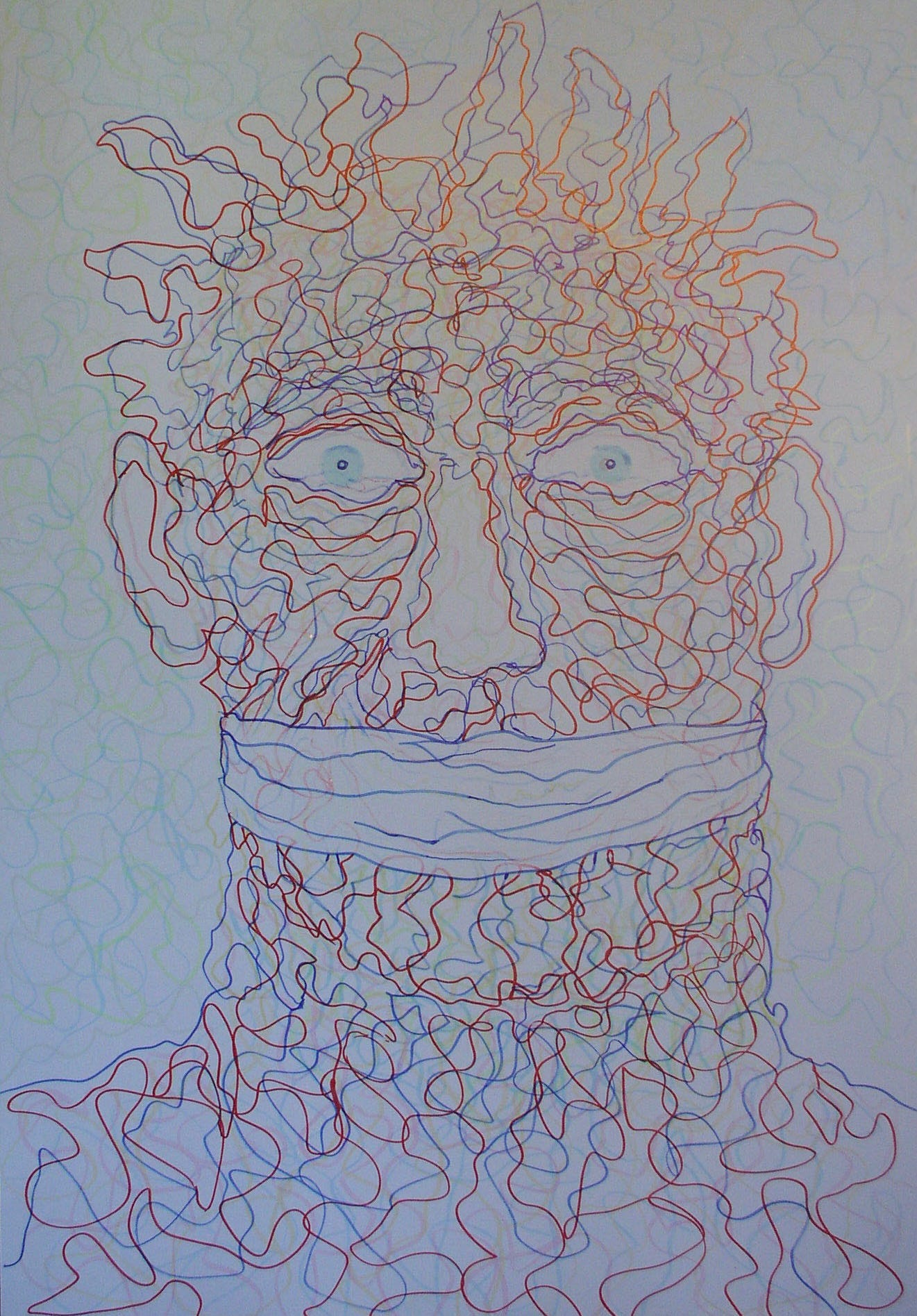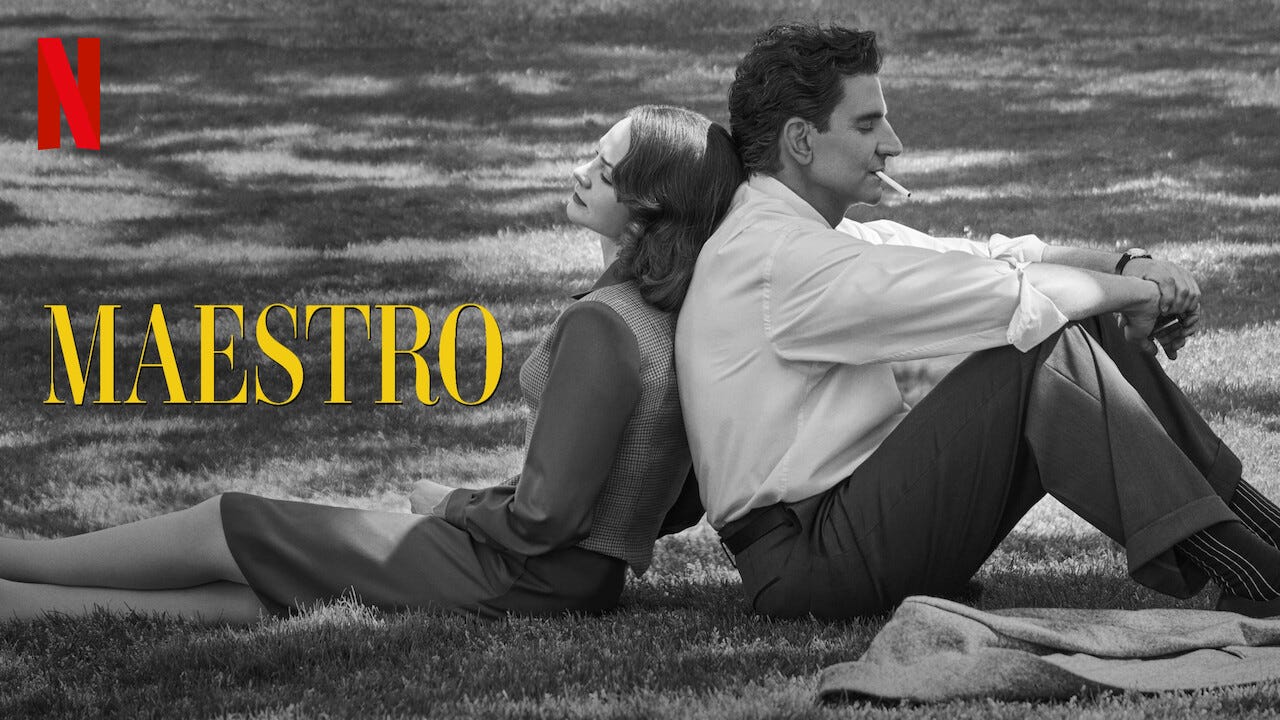Secrets and Lies
My father, Maestro, and narrative strategies
My origin story begins when my mother and father separated in 1970. I was six years old. In my (unreliable) memory we three children sat on the edge of their bed in the bedroom overlooking the Hudson River in New York City’s Upper West Side (one sister remembers it in the kitchen). Earle said, “your mother and I don’t love each other anymore.” Then, “but we love you girls” (or our mother would have said that). And then someone said (my father, defensively? My mother, bitterly?) that now he was going to devote himself to his art. Earle wrote about it in those terms in the few letters from the period that survive: to his father Andrew he explained, “I guess that those ten years I worked so hard while I was with R., I finally needed a year off— to return to my art and to try again to establish myself as an artist (as I was a few years ago).” My sisters and I grew up with the sense that art was our rival. It was incompatible with family ties.
I was astonished that my parents gave that excuse for the divorce so simply, without realizing its hurtful implications, but it wasn’t until years later that I discovered it also hid another story, a secret. In the 1990s Earle came out to me and my sisters as gay. He told us not to tell anyone, and we didn’t. Keeping that secret was a bequest as much as a request and I held it tight for the decade my father’s been gone, internalizing his burden and his feeling of shame. I wrote an essay about my father’s coming out, but couldn’t publish it. I wanted to tell and not-tell, know and not-know at the same time.
So my father had a secret and the memoir I was writing about his art career would have to reveal it. This raised several questions: was it okay for me to reveal it? Yes, I decided. The next question, then, was how? In one of the early drafts I revealed it chronologically, when my father told me about it. The book began with my parents’ divorce and then restarted with my father’s childhood in Chicago in the 1930s and moved forward by decade from there; the secret was told in the beginning of Part Two. But that created a problem — the problem you (my readers) and I are encountering here: the problem of suppressing the information until the reveal, a self-censoring that felt uncomfortably close to shame. What was the secret? Was it worth all this suspense? Isn’t this not-naming kind of confusing? When I revised, I moved the reveal to the opening passages, as above.
Last week I published “The Burden,” an essay in Dorothy Parker’s Ashes that expanded those passages into a longer piece about the impact of the secret-keeping and secret-telling on me. In it, the telling occurs in my husband’s voice, not mine. It’s a sleight of hand that I was proud of for its indirection. See how I could tell and not tell at the same time? See how well I could deflect and delay— just look at the passive construction of “the secret was told” in the paragraph above. See how I can avoid saying the words? This, dear readers, is both a narrative strategy and some impressive squirming.
Over this past year I snuck closer and closer to telling: giving a presentation on my memoir to my Women Writing Women’s Lives group, starting this Substack, then publishing that essay. The editors asked their contributors for audio files of the pieces, so I couldn’t even get out of speaking the words out loud. It felt cathartic.
I could write more about the anxiety attacks I experienced as I got closer to outing my father, as I did in “The Burden.” But here I’ll focus instead on the writerly and narrative implications. First of all, my father’s queerness rewrote the family story about my parents’ divorce. He didn’t leave the marriage because the wife and kids were keeping him from his art. He left because he was gay. That created something of a structural problem for the memoir, though, because my father’s cover story was blown right from the start, although I had believed it for decades.
Then, when my father came out to me and my sisters— in San Francisco in the 1990s— he released us from that narrative but imposed another fiction instead: that no one else knew. In fact, as I worked on the memoir I found more and more evidence that my father had been relatively out in the art world of the 1950s. He had lots of gay friends, or partners, he never mentioned later. My revised opening put both of the causes of my parents’ divorce— his desire to pursue his art and his being gay— right next to each other, though separated by decades, because they were both true. How those pieces fit together was the task of the rest of the memoir and fueled my research.
Between Fellow Travelers and Maestro, one slice of midcentury urban gay life is having a cultural moment now. This past weekend I finally watched Maestro. I had already read Jamie Bernstein’s memoir Famous Father Girl about her father and noted the scene where she asks him if he is gay and he lies. In the movie, Leonard is inclined to tell Jamie the truth but his wife Felicia stops him. In a recent article in Time Magazine, Jamie explains that her mother’s role in that scene was speculation:
In one chapter, I described spending a teenage summer working at Tanglewood, where I heard stories about my father’s “wild youth,” which included dalliances with men. I wrote uneasily to my mother, mentioning the stories. She evidently shared the letter with my father, who took me aside one evening after dinner to talk about what I’d heard. He said the stories weren’t true. As I wrote about this incident, I included a new thought: it was occurring to me for the first time that my mother might well have put my father up to denying those rumors. Bradley [Cooper, the movie’s director] took that piece of speculation and wove it into his narrative. In a perfect example of how storytelling can amplify reality, the scene where Felicia asks Lenny to lie to Jamie, who is played in the movie by Maya Hawke, feels absolutely, painfully plausible to me. And in the next scene, where Lenny and Jamie have their conversation, the long, nearly unbearable pauses convey the inarticulate connection of father and daughter far better than any dialogue could do.
I’d like to leave that block quote with a long, nearly unbearable pause of my own here. The silence is indeed painfully plausible. But one of the things I taught my composition students was never to leave a block quote without interpreting it: block quotes don’t simply “speak for themselves.” In this passage, I see the writer/daughter and the actor/director inserting themselves into Leonard and Felicia’s story, redirecting the narrative. And I’m struck by Jamie’s insistence that the secret (or lie) was a source of “inarticulate connection” too. We connect to others through silences as much as through words, which is another reason they are hard to break.
My dad was gay. In this piece that telling comes at the end, but I say it myself. My memoir aims to rewrite a family story— not necessarily to correct the record, because I couldn’t always find many records, and I recognize that mine is just another version, but to release my father from an oppressive narrative. The secret was a burden, but so was the shame.
Eventually I’ll put these exercises and other writing resources behind a paywall and roll out other perks for paying subscribers. Until then, feel free to try out the exercise, if useful. And please share or like or restack this post— engagement is how writers find readers.
Exercise: Instead of focusing on whether or not to tell a secret, figure out when and how. Who should reveal it? Where does that reveal belong? Experiment with ways of telling in active and passive voices, directly and indirectly, in words or through silences. See how each choice makes you feel as the writer and see how some trusted readers respond.
Resources:
I recently read and enjoyed Cat Sebastian’s romance We Could Be So Good, a tender account of one queer couple’s efforts to navigate their relationship in late 1950s New York City.
- is writing a book about permission in memoir writing: see this essay preview and more on memoir in general in her Substack Poor Man's Feast , which I highly recommend. I took a class on memoir-writing with Elissa last summer that helped me give myself permission to write all this.
I recommend Dorothy Parker’s Ashes as a venue for this kind of personal writing by women. They don’t pay contributors but working with them was a treat. You’ll find submission guidelines and upcoming themes here.




This is so beautiful and so brave.
I love, love “some impressive squirming,” the concept and the phrase.